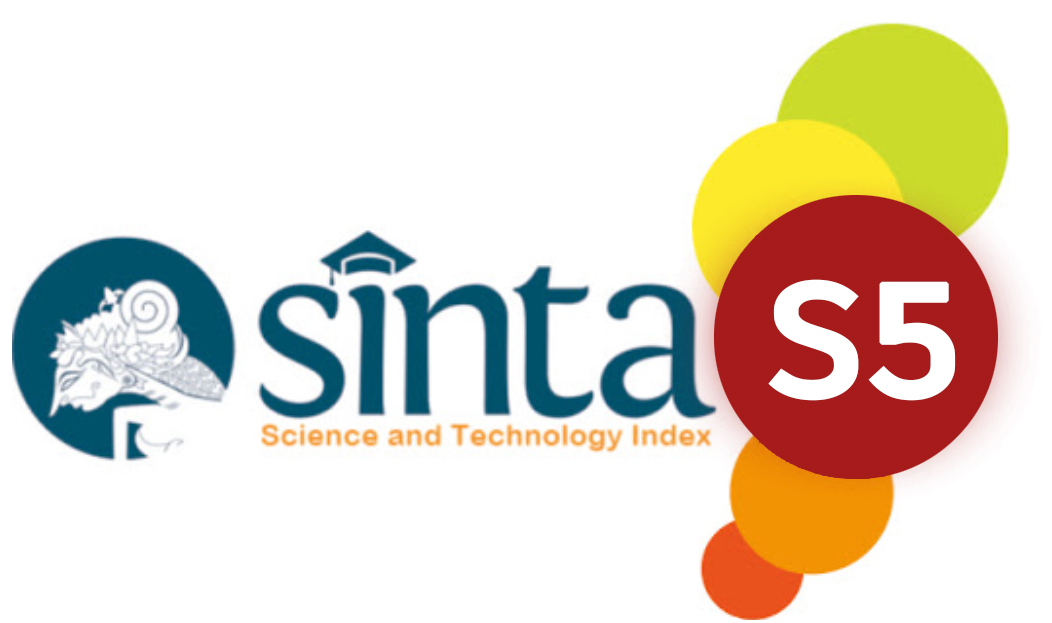ASEAN Energy Firms’ Financial Fortitude: Past Geopolitical Insights For Iran-Israel Challenges
DOI:
https://doi.org/10.31004/riggs.v4i2.1121Keywords:
Geopolitical Crises, Financial Ratios, Liquidity, Profitability, ASEAN Energy FirmsAbstract
Geopolitical crises, including the Gulf tensions (2019–2020) and the Russia-Ukraine conflict (2022), have profoundly disrupted the financial performance of ASEAN energy firms, offering critical insights for navigating the ongoing Iran-Israel conflict. This study investigates the influence of financial ratios—Debt to Equity Ratio (DER), Total Asset Turnover Ratio (TATO), and Liquidity Coverage Ratio (LCR)—on financial performance, measured through Current Ratio (CR) for liquidity and Net Income (NI) for profitability, across 101 energy firms in Indonesia, Malaysia, the Philippines, Thailand, and Singapore from 2019 to 2023. Utilizing panel data regression with data sourced from the Wall Street Journal, the findings demonstrate that LCR significantly enhances both liquidity and profitability, ensuring resilience amid market volatility. Conversely, TATO negatively impacts liquidity, reflecting trade-offs in asset efficiency, while DER shows no significant effect, suggesting prudent debt management. Firm Size increases profitability but reduces liquidity due to operational complexity. These results advance theoretical understanding of financial resilience in emerging markets and provide actionable liquidity-focused strategies for managers and policymakers to address current geopolitical uncertainties, fostering robust financial stability.
Downloads
References
A. Quimba, F. M., & A. Barral, M. A. (2024). ASEAN Centrality Amid Increasing Global Multipolarity. https://doi.org/10.62986/dp2024.38
Ab Aziz, N. H., Abdul Latiff, A. R., Hisham Osman, M. N., & Alshdaifat, S. M. (2024). The Interaction Effect of Family Ownership, Board Gender and Skills on CSR Strategy With ESG Performance: Evidence From ASEAN-5 Countries. Corporate Governance. https://doi.org/10.1108/cg-02-2024-0113
Beeson, M. (2022). Decentered? ASEAN’s Struggle to Accommodate Great Power Competition. Global Studies Quarterly. https://doi.org/10.1093/isagsq/ksab044
Bossu, W., Hillier, C., & Bergthaler, W. (2020). Local Currency Bond Markets Law Reform. Imf Working Paper. https://doi.org/10.5089/9781513561608.001
Burki, A. K., Ahamed Mafaz, M. N., Ahmad, Z., Zulfaka, A., & al-Amatullah, I. (2024). The Impact of ESG Disclosures on Financial Performance: Evidence From ASEAN-Listed Companies. American Journal of Economic and Management Business (Ajemb). https://doi.org/10.58631/ajemb.v3i10.120
Chen, J., Apañada, M., & Gonçalves, T. M. (2024). Accelerating Power Grid Interconnectivity in Southeast Asia: A Private Sector Perspective. Iop Conference Series Earth and Environmental Science. https://doi.org/10.1088/1755-1315/1395/1/012018
Chukwuma-Eke, E. C., Ogunsola, O. Y., & Isibor, N. J. (2023). A Strategic Framework for Enhancing Vendor Invoice Management and Operational Efficiency in Large Energy Firms. Ijmor. https://doi.org/10.54660/ijmor.2023.2.1.192-208
Dat, N. M., Dai, N. Q., & Ngọc, P. B. (2022). The Impact of Corporate Social Responsibilities (CSR), Entrepreneurship, and Financial Factors on the Financial Performance of the Banks in ASEAN Countries. Contemporary Economics. https://doi.org/10.5709/ce.1897-9254.479
Esty Rahayu, N. E., Kusuma, H., & Arifin, Z. (2025). The Influence of Macroeconomic Factors on Financial Distress of Companies in Asean: An Analysis of SDG Implications. JLSDGR. https://doi.org/10.47172/2965-730x.sdgsreview.v5.n03.pe05060
Henrika, M., Ariswati, L. D., Kesuma, M. R., Widaryo, C. M., Irianto, E. D. O., & Aini, R. N. (2025). Trade wars and tech giants: The U.S.–China policy effect on American technology companies. JEMBA: Jurnal Ekonomi Pembangunan, Manajemen & Bisnis, Akuntansi, 5(1), 65–74. https://doi.org/10.52300/jemba.v5i1.20277
Irianto, E. D. O., Kesuma, M. R., Aini, R. N., Henrika, M., & Ariswati, L. D. (2025). Role of sustainable finance in driving environmental, social and governance (ESG) based investments. JEMBA: Jurnal Ekonomi Pembangunan, Manajemen & Bisnis, Akuntansi, 5(1), 36–46. https://doi.org/10.52300/jemba.v5i1.20029
Irianto, E. D. O., Kesuma, M. R., Henrika, M., Widaryo, C. M., Aini, R. N., & Ariswati, L. D. (2025). Liquidity and Financial Resilience: Lessons from Indonesia Amid COVID-19 Resurgence. RIGGS: Journal of Artificial Intelligence and Digital Business, 4(2), 2749–2757.
Kesuma, M. R., Henrika, M., & Ariswati, L. D. (2025). The Impact Of Capital Intensity On Financial Stability Of Energy Sector Companies In Indonesia. Journal of Financial Economics & Investment, 5(2), 115–127.
Kesuma, M. R., Henrika S., M., Ariswati, L. D., Widaryo, C. M., Irianto, E. D. O., & Aini, R. N. (2025). Exploring Climate Risk Effects on Financial Performance in Energy Sector. RIGGS: Journal of Artificial Intelligence and Digital Business, 4(2), 235–241. https://doi.org/10.31004/riggs.v4i2.483
Kesuma, M. R., Widaryo, C. M., Irianto, E. D. O., & Aini, R. N. (2025). Pengaruh Makroekonomi terhadap Kinerja Perusahaan Energi. RIGGS: Journal of Artificial Intelligence and Digital Business, 4(1), 464–470. https://doi.org/10.31004/riggs.v4i1.435
Khatri, I. (2023). The Role of Analyst Coverage and Value-Relevance of Energy Efficiency. Review of Accounting and Finance. https://doi.org/10.1108/raf-08-2022-0211
Konovalova, M. E., & Abuzov, A. (2023). Geopolitical Crises, the Energy Sector, and the Financial Capital Market. E3s Web of Conferences. https://doi.org/10.1051/e3sconf/202338101042
Meirawati, E., Hamzah, R. S., Donata Gozali, E. O., Azzahra, A., & Chulim, F. R. (2024). Analisis Kebijakan Dividen Melalui Indikator Sektor Perbankan Di 5 Negara ASEAN. Jurnal Akuntansi Keuangan Dan Manajemen. https://doi.org/10.35912/jakman.v5i3.3115
Oktarina, D. (2019). Peran Nilai Perusahaan Dalam Menentukan Pengaruh Kinerja Perusahaan Terhadap Financial Distress Di Asean. Jurnal Profita. https://doi.org/10.22441/profita.2019.v12.03.009
Olalere, O. E., Islam, Md. A., Mat Junoh, M. Z., Yusoff, W. S., & Iqbal, M. M. (2020). Revisiting the Impact of Intrinsic Financial Risks on the Firm Value of Banks in ASEAN-5 Countries: A Panel Data Approach. Banks and Bank Systems. https://doi.org/10.21511/bbs.15(2).2020.18
Piter Silitonga, R. J., Anh, V. T., Supendi, S. B., & Firstonda Katon, M. A. (2024). Assessing the Impact of ASEAN’s Harmonised Minimum Efficiency Performance Standards on AC Manufacturers. Iop Conference Series Earth and Environmental Science. https://doi.org/10.1088/1755-1315/1395/1/012013
Rahma, N., & Rokhim, R. (2022). Is There Any Effect of ESG Performance in the Improvement of Financial Risk in ASEAN-5? International Journal of Quantitative Research and Modeling. https://doi.org/10.46336/ijqrm.v3i2.274
Rattanapong, P., & Na Ayuthaya, S. D. (2025). Influential Factors of Cybersecurity Investment: A Quantitative SEM Analysis. Management Science Letters. https://doi.org/10.5267/j.msl.2024.3.005
Syafii, M., Lobubun, M., & Rerung, A. (2024). Corporate Social Responsibility and Financial Performance: An Integrative Meta-Analytic Review. Global. https://doi.org/10.59613/global.v2i10.341
Syahputri, A. (2025). The Impact of ESG Performance and Financial Constraint on Tax Avoidance: Evidence From ASEAN 5. Jurnal Dinamika Akuntansi. https://doi.org/10.15294/jda.v17i1.19610
Downloads
Published
How to Cite
Issue
Section
License
Copyright (c) 2025 Muhammad Ramadhani Kesuma, Ellen D. Oktanti Irianto, Lusiana Desy Ariswati, Margareth Henrika, Chandika Mahendra Widaryo, Rohana Nur Aini

This work is licensed under a Creative Commons Attribution 4.0 International License.




























